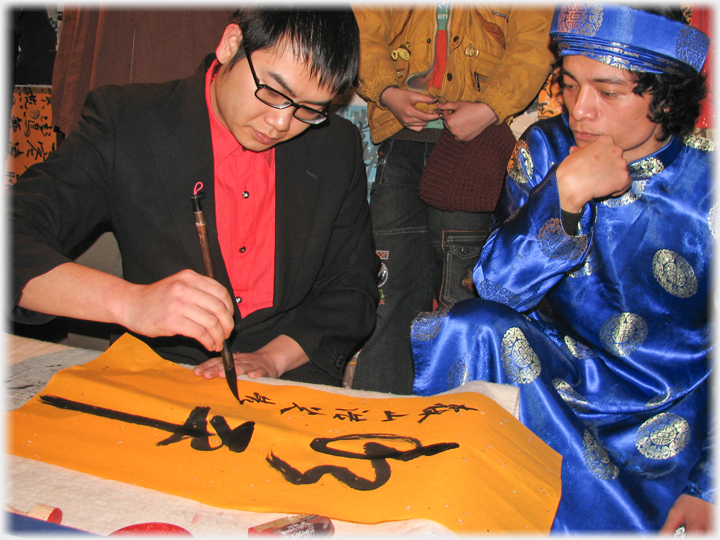
Creation v. Expression
The ideas [creation] embraces are of absolutely fundamental importance in Western thought...Far more vital in the Chinese tradition are the twin concepts of [be born, produce] and [become], along with [transform]. In all these cases there is hardly any idea of an agent; the controlling metaphor is that of growth and development within the actual process of Nature.
Alison Black (1989)

We do not have in Japan any idea that one entity is responsible for creation, for the creation of the world. Things become, they don’t get created, they grow...the world emerges out of mud.
Richard Bowing (2011)

It is not easy to understand what is meant when it is claimed that god ‘created’ the world, or that it started with a big
bang.
 Circles and spirals in contrast to lines with beginnings and ends.
Circles and spirals in contrast to lines with beginnings and ends.
Normally when we create an object it is by drawing it out of surrounding materials; Michelangelo’s figures
emerging
 Emergence exhibits a parallel problem, how can we come to know what we do not know?
from the stone blocks are surely classic examples of creation. In the Far East accounts of our world do not often involve such creative acts, acts which need an agent or force, and which happen at a particular time. Becoming, growth and transformation require neither agent nor an instant for their associated ontologies; in the east the bang of the ‘big bang’ becomes a pulse. Alison Black explores the Chinese position through the concept of ‘expression’: that which emerges from what already is. Instead of the western way of adducing a magical aspect (- of something from nothing)
nature
Emergence exhibits a parallel problem, how can we come to know what we do not know?
from the stone blocks are surely classic examples of creation. In the Far East accounts of our world do not often involve such creative acts, acts which need an agent or force, and which happen at a particular time. Becoming, growth and transformation require neither agent nor an instant for their associated ontologies; in the east the bang of the ‘big bang’ becomes a pulse. Alison Black explores the Chinese position through the concept of ‘expression’: that which emerges from what already is. Instead of the western way of adducing a magical aspect (- of something from nothing)
nature
 The dual aspect of nature, environment and our inner selves, have a long history.
is held to be, as she is seen, not with bookends, but as an unrestrained, atemporal, continuous burgeoning
forth.
The dual aspect of nature, environment and our inner selves, have a long history.
is held to be, as she is seen, not with bookends, but as an unrestrained, atemporal, continuous burgeoning
forth.
 On the Chinese idea that there is a flow, a form to nature with which we can work.
On the Chinese idea that there is a flow, a form to nature with which we can work.
Alison Harley Black’s deeply probing book appeared under the rather off-putting title of Man and Nature in the Philosophical Thought of Wang Fu-chih, published by the University of Washington, while expounding Wang’s ideas about Nature, on the way it offers an exceptional critique of a number of key western assumptions. As with most books of such abstraction finding summary quotes is not easy. Above she is introducing this core distinction on page 3/4. The In Our Time BBC Radio 4 broadcast of 22nd September 2011 concerned the Japanese cultural tradition of Shinto. Bowing is a professor of Japanese studies at Cambridge University.
Photograph taken at a calligraphy exhibition in Hà Nội - calligraphy being one of the highest creative arts in the Far East.
Above, hovering on blue introduces a link: click to go, move away to stay.

Saturday 29th October 2022
 ...guide to this site
...guide to this site